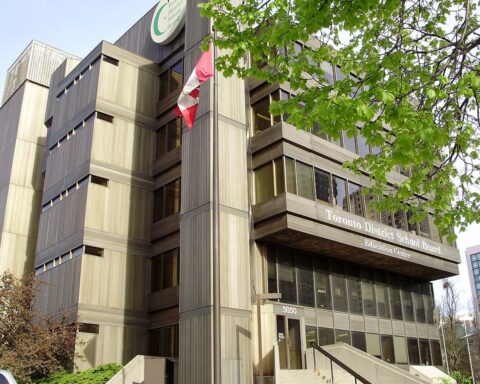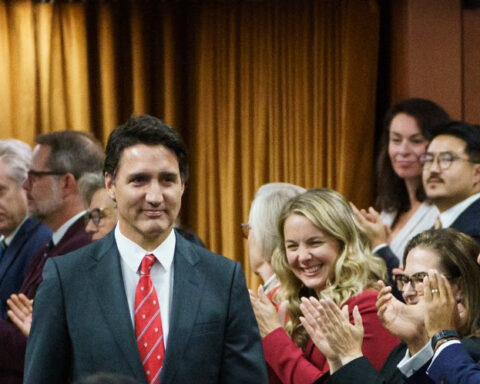The Liberal government has emphasized its diversity and inclusion language in speeches, cabinet ministers, committees and mandate letters. This emphasis has been reinforced by the return of the multiculturalism program to Canadian Heritage. Taken together, these represent mainstreaming of diversity, inclusion and multiculturalism to an unparalleled extent.
It starts with the language of Prime Minister Trudeau who regularly emphasizes that:
Canadians understand that diversity is our strength. We know that Canada has succeeded — culturally, politically, economically — because of our diversity, not in spite of it.
It continues with the creation of the Cabinet Committee on Diversity and Inclusion, with a strong inclusion mandate for Indigenous and new Canadians:
Considers issues concerning the social fabric of Canada and the promotion of Canadian pluralism. Examines initiatives designed to strengthen the relationship with Indigenous Canadians, improve the economic performance of immigrants, and promote Canadian diversity, multiculturalism, and linguistic duality.
It is reflected in his choice of ministers: 50 per cent women, 17 per cent visible minority.
Holding all ministers to account … should ensure greater progress on the two objectives of multiculturalism: recognition and equality.
And is further reinforced in the shared mandate letter commitments for all ministers with two strong multiculturalism-related commitments:
Canadians expect us, in our work, to reflect the values we all embrace: inclusion, honesty, hard work, fiscal prudence, and generosity of spirit. We will be a government that governs for all Canadians, and I expect you, in your work, to bring Canadians together.
You are expected to do your part to fulfill our government’s commitment to transparent, merit-based appointments, to help ensure gender parity and that Indigenous Canadians and minority groups are better reflected in positions of leadership.
Holding all ministers to account, with the PMO tracking these and other shared commitments (in addition to minister-specific commitments), should ensure greater progress on the two objectives of multiculturalism: recognition and equality.
It will take some time to see how well these commitments are implemented, particularly with respect to appointments. An early test was with respect to parliamentary secretaries where 34 per cent were women (below parity), but 23 per cent were visible minorities (significantly above).
Equally important, the previous government’s weak record on the diversity of judicial appointments (less than two per cent visible minority) will start to be addressed.
Rebuilding multiculturalism policy
Overall, the new government made few changes to how government is formally organized (machinery changes). This was wise given the disruption and turmoil that such changes can entail (e.g., the Martin government’s splitting apart Human Resources and Skills Development and the Department of Foreign Affairs and International Trade in 2004, reversed by the Harper government in 2006).
This makes the return of the multiculturalism program to Canadian Heritage all the more striking, after some eight years at Citizenship and Immigration (now Immigration, Refugees and Citizenship Canada or IRCC).
[T]he return of multiculturalism to Canadian Heritage reinforces the overall government diversity and inclusion agenda.
The original transfer to CIC was largely driven by political reasons given then Minister Jason Kenney’s political outreach role with ethnic groups.
However, there was also a policy rationale. Multiculturalism deals with longer-term multi-generational issues (along with ‘mainstream’ visible minority relations) in contrast to the newcomer focus of the immigration, integration and citizenship programs.
While multiculturalism could be seen as a logical extension of CIC’s mandate, and was portrayed as such in one of CIC’s strategic objectives, ‘building an integrated society,’ in practice, however, the multiculturalism program withered away at CIC.
When the program moved to CIC in 2008, it had a $13 million budget: $12 million for grants and contributions and 73 full-time positions. The last departmental performance report (2013-14) showed 29 full-time positions (a decline of 60 per cent) with a $9.8 million budget. Money for grants and contributions fell to $7.9 million.
Negotiations over the resources to be returned to Canadian Heritage will be challenging, given the impact may be felt in other program areas in IRCC that benefited from the redistribution of Multiculturalism funds. Moreover, the weakened capacity will require a major rebuilding and re-staffing effort.
From a policy perspective, the return of multiculturalism to Canadian Heritage reinforces the overall government diversity and inclusion agenda, as well as the Canadian identity agenda, which fits nicely with Canadian Heritage’s overall mandate.
However, Minister Mélanie Joly’s public statements to date have not included any significant references to multiculturalism. Her general orientation, however, has been clear: to promote the “symbols of progressiveness. That was (sic) the soul of our platform.”
Overall, the commitment to a diversity and inclusion agenda, supported by a Cabinet Committee and shared Ministerial mandate letter commitments, and the rebuilding of multiculturalism back at Canadian Heritage, bode well for a more effective inclusion, diversity and multiculturalism strategy across government.
Andrew Griffith is the author of Multiculturalism in Canada: Evidence and Anecdote and Policy Arrogance or Innocent Bias: Resetting Citizenship and Multiculturalism and is a regular media commentator and blogger (Multiculturalism Meanderings). He is the former Director General for Citizenship and Multiculturalism.
This article first appeared on The Hill Times. Re-published with permission from author.
Andrew Griffith is the author of Multiculturalism in Canada: Evidence and Anecdote, Policy Arrogance or Innocent Bias: Resetting Citizenship and Multiculturalism and many other works. He is a former Director-General of Citizenship and Immigration Canada, Citizenship and Multiculturalism branch. He regularly comments on citizenship, multiculturalism and related issues, in this blog and the media.





